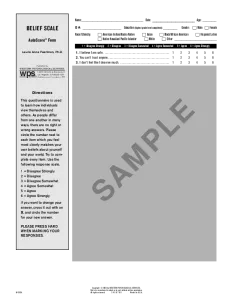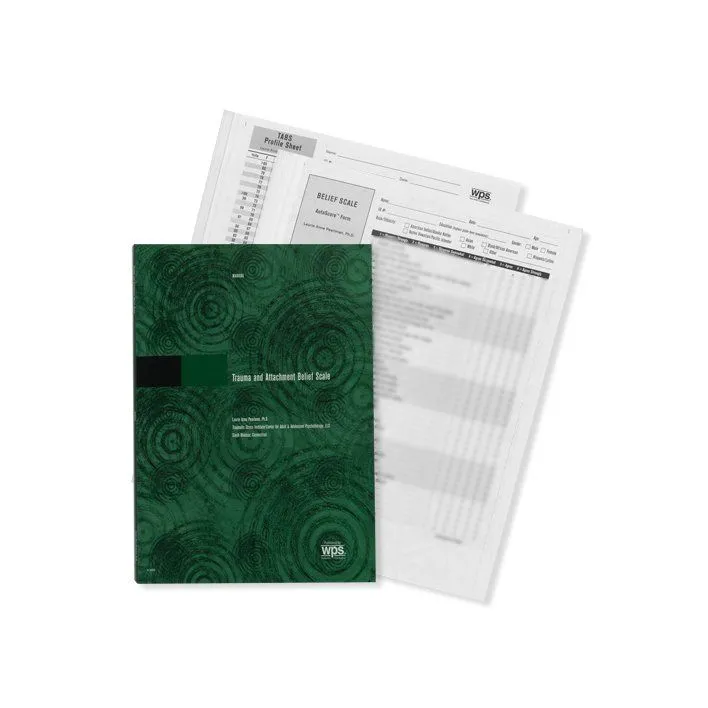(TABS) Trauma and Attachment Belief Scale
(TABS) Trauma and Attachment Belief Scale
Download Sample Materials


Sign In to download sample materials.
Don't have an account? Register Here.
About This Product

BY LAURIE ANNE PEARLMAN, PHD
Previously known as the Traumatic Stress Institute (TSI) Belief Scale, this highly useful instrument assesses the long-lasting psychological impact of traumatic life events. The TABS helps you design the most effective therapeutic approach for individual trauma survivors as well as important themes that characterize the client’s relationships—often including the therapeutic relationship.
Assess Five Areas Sensitive to the Effects of Trauma
Composed of 84 items, the TABS is a self-report, paper-and-pencil test. It assesses beliefs—about self and others—that are related to five needs commonly affected by traumatic experience:
- Safety
- Trust
- Esteem
- Intimacy
- Control
For each of these dimensions, the TABS produces 10 scale scores reflecting “beliefs about self” and “beliefs about others.” A Total Score is also provided.
The client rates each item on a 6-point scale. Adult norms are based on a heterogeneous sample of 1,743 individuals ages 18 and older. Youth norms (provided with the Youth AutoScore™Form; not reported in the Manual) are derived from a sample of 1,242 students, 9 to 18 years of age, from public schools throughout the United States. They are separated by age (9 to 13 years and 14 to 18 years). Test items require only a third-grade reading level.
Use the TABS to Examine Relationship Disruptions
Because the effects of trauma are so pervasive—often involving defenses, coping styles, view of self and others, ego resources, psychological needs, worldview, and identity—the TABS has a wide range of clinical applications. It can be used even when a client does not meet the diagnostic criteria for PTSD since it addresses issues that frequently come up in therapy for other problems. Items do not focus on trauma-related symptoms per se, but rather on an individual’s relationship history. They do not stigmatize or pathologize, making the TABS helpful in any therapeutic endeavor that is focused on relationship disruptions.
Brief, nonthreatening, easy to read, and highly sensitive to the specific effects of traumatic experience, the TABS gives you a valuable tool in assessing trauma survivors, clients with PTSD, individuals with vicarious traumatization, and those with other psychological problems.





